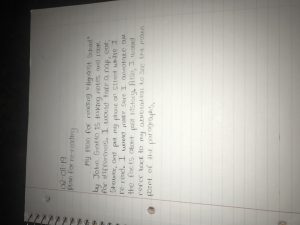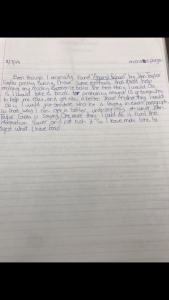Steps I decided to take when reading included: 1) If I needed a break, I would take one 2) If I didn’t understand something, I would have reread it slowly. 3) If I found words that I didn’t understand, I would simply use the internet to define them. 4) If Gatto was repeating the same idea but just phrasing it differently, that I could take note of the differences between each of them. 5) Finally, I would listen to music as I worked.
So the first time I read Gatto’s “Against School” I found myself initially getting lazily by through the read, although finding it to be a pretty interesting one in the end. I found myself lost and not really invested in the read however, especially at the sight of vocabulary words in sentences. Because of this I made myself a list of steps that I would take to approach the reading to help better my understanding of the text overall. Those list of steps lead me to realize and learn a lot of things after I approached the reading again. This time I found the read to be a pretty easy one to grasp. The ideas were clear and fairly simple to comprehend this time around. The vocabulary words found themselves to have been defined on sight considering I had the power of a dictionary and the internet on my side. Focus wasn’t as big an issue in the beginning as it was the first time around when I first read the text, since I already had background on what the overarching point that Gatto was trying to get across I just had to figure out how he was going about it in that specific paragraph. Overall listening to music of course made this that little bit easier since I had something keeping me aware and active enough to keep reading. To be frank, I wish I had already known to take these steps prior to even having made them in the first place. Now for what I learned? I learned that Gatto is a man who is a veteran of 30 years in the education system, who once pondered why it was that schools were the way they were (students were bored, as for teachers) that because they’re designed to keep impudence, unity, and riots out of the nature of civilians. That they were to subtly train everyone to be subconsciously servile and submissive. He also spoke of ways that we could possibly get around the system although never explicitly stating whether we could actually “beat” it or not.





